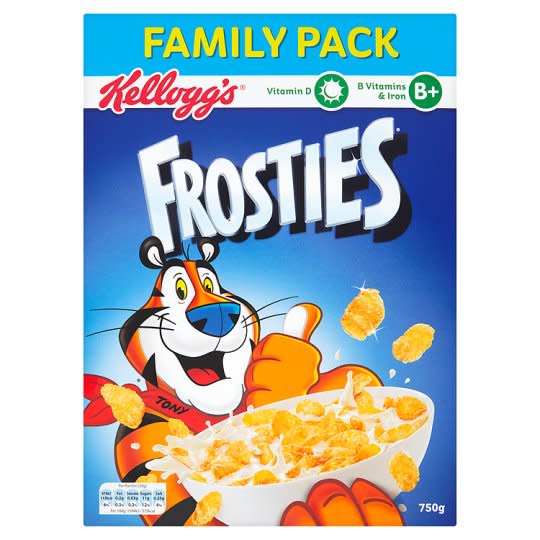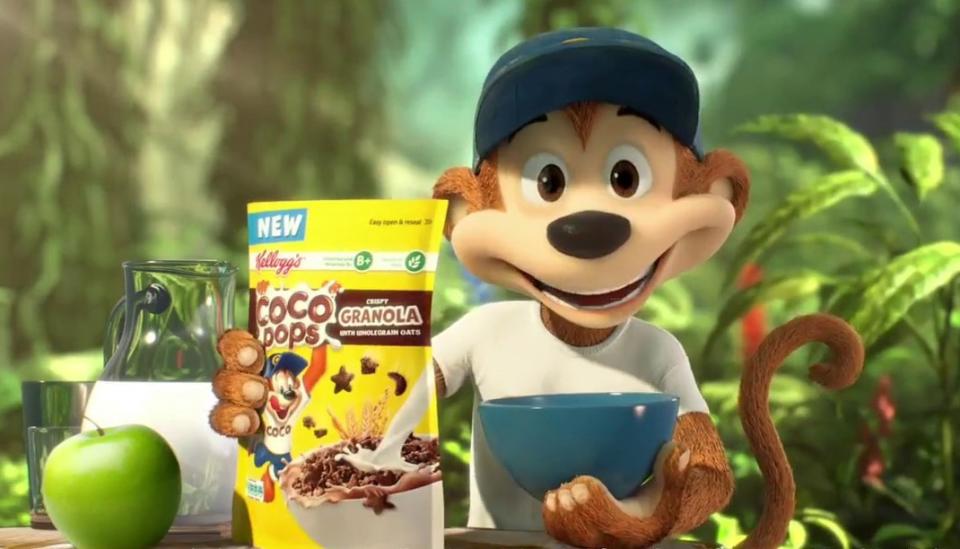Kellogg's axes Ricicles in health drive but thousands mourn loss of childhood favourite

Kellogg’s is to stop making Ricicles, a childhood favourite breakfast cereal for millions.
The US food giant made the move as part of its drive to cut sugar levels. But it’s not gone down well with scores of older foodies.
Many headed to Twitter to bemoan the end of the brand, which featured often as part of a variety pack of cereals during their childhood.
One Twitter user Andrew posted a picture of Queen frontman Freddie Mercury singing: “I want to keep my Ricicles.”
@KelloggsUK
I want to keep my Ricicles !!! pic.twitter.com/LFw9zqf0Ir— Andrew (@_A_n_d_r_e_w_s) November 30, 2017
Richard Osman, star of Pointless, said he was “gutted”, while British indy car race driver Max Chilton said it was a “sad day”.
Gutted that Kellogg’s have announced they’re axing Ricicles. How will we know what the worst cereal in a Variety Pack is now?
— Richard Osman (@richardosman) November 30, 2017
30th November 2017 will go down in books as a sad day.@KelloggsUK is stopping the production of their Ricicles brand!#childhoodmemories
pic.twitter.com/OAdLBsxqpg— M A X Chilton (@maxchilton) November 30, 2017
Kellogg’s will no longer sell Ricicles, one of its sweetest cereals, containing 34g of sugar per 100g. It’s also slashing the sugar content in a number of its best-selling breakfast cereals – but not Frosties as they’re eaten mainly by adult men who should know better.
Sugar will be cut by between 20% and 40% in Rice Krispies, Coco Pops and Rice Krispies Multi-Grain Shapes, it’s top selling children’s cereals.
MORE: NHS could ban sugary drinks from hospital shops
Managing director Oli Morton, speaking on BBC Radio 5 Live’s Wake Up to Money, said Kellogg’s was to stop marketing Frosties at children.
“We’re going to stop promoting that brand towards kids,” he said. “There is a generation of people who have grown up with Frosties.
“We haven’t had that on air or targeted in that way since 2010 and what it has meant for us is that majority of people who consume Frosties are actually adult males, that’s who love the brand so we’re repositioning that as an adult brand.”

Frostie’s, and its Tony the Tiger figurehead with his “They’re G-r-r-r-eat” catchphrase, was a huge brand during the 1970s and 80s, featuring regularly in TV advertising and marketing promotions.
Kellogg’s said it planned to reduce the amount of sugar in Coco Pops from 30g per 100g to 17g, a 40% reduction.
Finally, the last vestige of childhood has gone. When you fought your three brothers and sister for the #Ricicles. I might have to eat some for nostalgia. I tried this before with Farley’s Rusks x 4 in a tower in warm milk but it wasn’t the same alas… https://t.co/28zT8EAAVt
— Heather Lyons (@HezTalk) November 30, 2017
“This is following a reduction of 14% earlier this year, meaning that from 2017 to 2018, it will have halved the sugar in Coco Pops,” Kellogg also said in a statement.
Nah. Not having this. They’re axing Ricicles? Sugar is bad, I know, but the milk after a bowl? Wowsers. Was always the one to fight over in a Variety Pack. pic.twitter.com/hbIsDZwfv1
— Mike McGrail (@mike_mcgrail) November 30, 2017
MORE: Terry’s Chocolate Orange has doubled in price this Christmas
Sugar in Rice Krispies will be cut by 20% and in Rice Krispies Multi-Grain Shapes it will be reduced by 30% per serving.
The move to cut sugar content comes as health professionals continue to press food companies to do more to help families cut down on sugar intake among children.

Many studies have reported growing obesity levels among young people. More than one in four adults in the UK is obese and 37% are overweight, according to official statistics.
Nearly one in ten children starting school are obese, says the NHS, and by the time they are readying to move up to secondary school, that proportion has risen to one in five.
MORE: Coca-Cola’s love affair with UK consumers fizzles out as profits drop
The government recommends that children aged between seven and 10 should eat no more than 24g of sugar, or the equivalent of six sugar cubes, per day.
In March, Public Health England called on food firms to cut sugar by 20% by 2020, and by 5% this year.
A sugar tax is due to hit the soft drinks industry in April next year.

 Yahoo Finance
Yahoo Finance 